“Not a word about Snapchat”: Viktor Shaburov - about his projects, sports programming and IT business trends
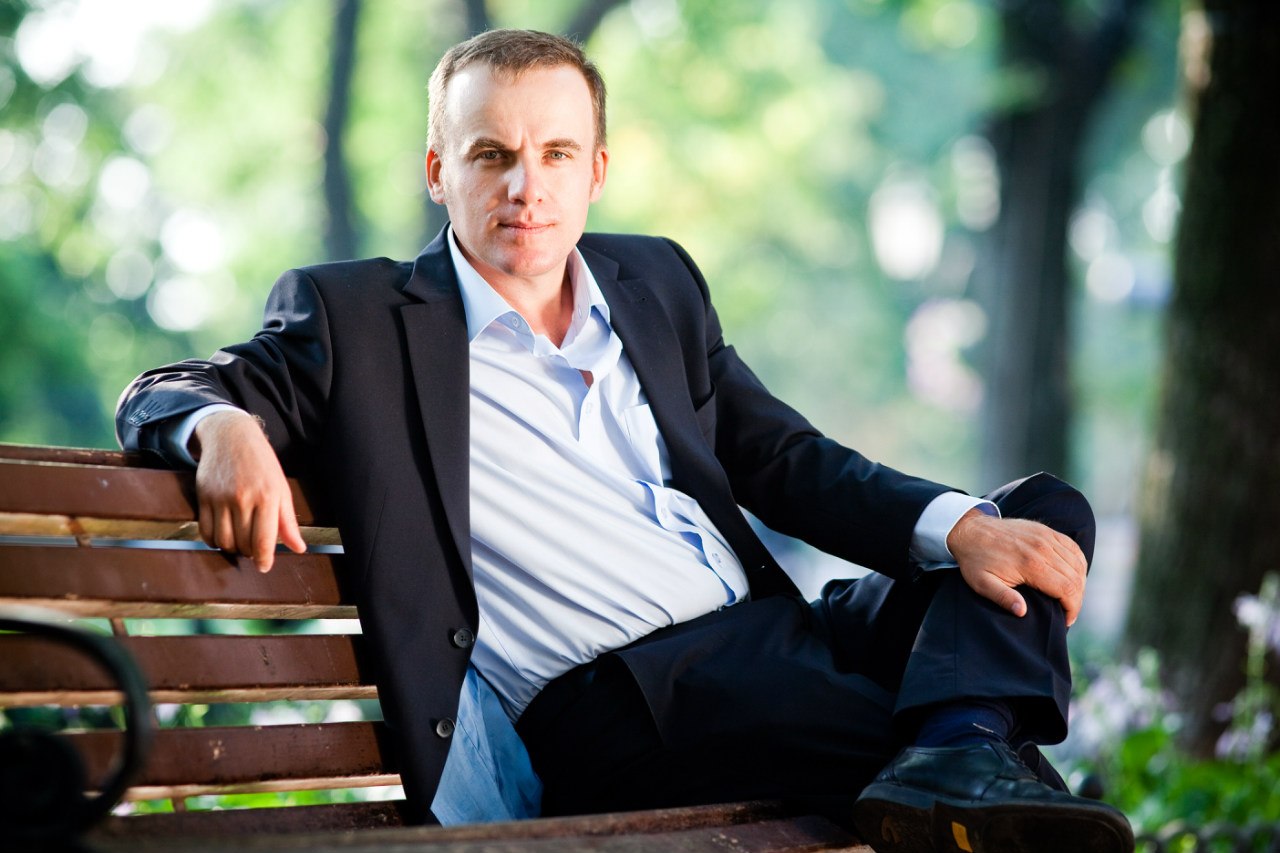
Victor Shaburov is a widely known person in narrow circles. But in the wake of events related to the next victory of Russian programmers from St. Petersburg (St. Petersburg State University) at the 2016 World Programming Championship, Viktor’s fame has once again gone beyond these circles.
Victor not only sponsors teams of sports programming of various levels and geography (including the St. Petersburg State University team), he is an entrepreneur, an investor and one of the founders of Looksery Inc. , Handster Inc. and SPB Software .
')
Viktor Shaburov went from being a schoolboy keen on mathematics from a village near Yekaterinburg to a technical director of the company Snapchat. We decided to learn about how it was, first hand.
You first made one company, then you managed to work in another. Then you went to Opera. Then you made a startup that eventually sold Snapchat to $ 150 million, where you are currently working as a technical director.
How did it happen? How did this happen? Why did you even start doing this in childhood? What attracted you to programming and, in particular, to sports programming?
Interest Ask. Here, in fact, Ekaterinburg played a certain role. Dashing 90s in Yekaterinburg: if you want to survive, you need to be able to spin. And since I loved mathematics and won olympiads, I got to school, which in Russia is considered the fourth best school - SSC at the Ural State University.
At that moment I specialized more in mathematics, but at the university I already understood that mathematics is hard to feed and it is necessary to deal with IT. And I had good English - I loved it too: right up to the fact that I did not watch TV in Russian.
And when I moved to IT, it so happened that knowledge of English directed me more towards communicating with clients, concluding contracts and contracts.
Because of this, you were immediately dipped into activities related to building a business, sales?
Yes. But not that I was dipped - I dipped myself. It all started with the fact that I decided to try to get a job in some cool office and chose the most terrible job description, where a bunch of scary words were used at that time, like Java Servlets, Corba (distributed system). And I decided that it would be interesting to work out and sent me my resume: I wrote to them that I could do it all ... although I could not do anything. I forgot to attach my resume to the letter.
But I had a phone. At that time it was a rarity. And they called me and said: “You forgot your resume, but come rather to us, because we need a specialist who knows everything.” (Laughs)
I arrived, and they began to tell me something ... I do not understand a word. And then I say: “OK. Just a minute. I take a bunch of paper and begin to write down everything they say, and at the same time turn away from them, because I was not sure that the words were written correctly, which they pronounced.
And so that they did not ask me anything, I myself started asking them questions. This is a defensive reaction: you are afraid that you, as Stirlitz, will be overwhelmed, therefore you should ask questions yourself. I ask them: “You have an administrator here. What should he do? Here you have a group supervisor. What should he do? ”And so we communicate for two hours.
And, as it turned out, this company was some Russian office, which piled the tender for an email-system for the Italian Ministry of Agriculture. And they did not have the resources. And they decided to blame everything on me. When the conversation ended, they said: “We all give the project to you. Go do it. ” I asked: “Why me?” They replied: “You have the most professional approach. Programmers came, began to argue: it is necessary to write on that technology, and not on that. And you do not argue, ask what we need. And you are the only one who records it. We believe that you understand what we want ”(laughs).
And then I thought that such a serious project should be done with some serious specialists. At that time, the coolest in Russia was Vasily Filippov, who with the team then took one of the top places in the World Programming Championship.
I came to him and said: “Look. A bunch of incomprehensible text. Let's do it. ” And thus, in essence, a company emerged that later, after restructuring, was called SPB Software, which Yandex bought for $ 38 million.
You are so easy to say that you came to the best person in Russia. So for you, this is the norm? In your social circle because of your activities have always been such people? Do you have many acquaintances among the winners of the Olympiads of different years? Do you keep in touch with everyone?
I studied at the Mathematical Institute of St. Petersburg State University. On MatFur strong programming. And it was logical to think that the best is the one who went with the team to the world championship and took the top place. So I went to him.
Did you know each other before?
In fact, a little was familiar. I saw him, but before that we did not closely communicate.
After that, you worked at SAP, and then you founded your first own company, rather than trying to look for some kind of employer. Why did this happen? Did something happen in SAP? You registered patents there, worked for 7 years - a decent time. Why did you then set up your business?
Let's just say, at that moment, when I left SPB-software and went to Germany, to work at SAP, it was a moment, so to speak, of faint-heartedness. I was afraid that the business would fail. And, for example, Vasily was not afraid, and they turned out to be a business.
And the fact that I left SAP, it was logical. That is, when I earned some money from patents, I decided to invest it in my business. And what we launched was the App Store Handster, which just started by selling products to SPB Software, and then adding a bunch of other developers. It became the world's largest independent Android App Store and eventually reached 100 million monthly users.

Was it originally the Android App Store before the advent of Google Play?
Not really. It was originally the Windows Mobile App Store. That was, of course, before the advent of Google Play. And then we added other platforms - Android, Symbian.
This company in 2011, as I understand it, absorbed. You worked in Opera for a while. After that, you create your company again. And how did you start Handster? This idea occurred to you, did you implement it yourself?
Then the market looked like this. At that time, people had mostly PDAs, handhelds that were not connected to the cellular network. And we knew that 4% of people buy software on the PDA. That is, a tiny part, while others do not even know what it is.
And we had an idea to create a platform on which we can pre-install with OEMs, launch the application exchange with the purchase. We had an idea that the market is huge, just no one came out to it, except for these 4%. Under this case, and was launched Handster.
Then there were devices with access to cellular networks, and this problem ceased to exist. But by that moment we had already gained a user base ... somewhere a million users a month, maybe ...
There's an interesting story: we had a very good SEO optimization and Google even released a patch (“caffeine” was called), which, in particular, slammed us. This made us switch to the production of what is called the White label store for other companies, and with this we started to get a good turn. We won the first tender for Hewlett Packard. The store was called Hewlett Packard iPAQ Store and was on our platform.
Then we launched the LG World Store, then for Toshiba, then for TIM Italy, TIM Brazil - mobile operators, and we went.
Let's have a couple of words about Opera?
Opera is a very cool company because I was beaten there almost every day, and because of this I learned how to build a business and sell solutions. It was a very good experience.
Let's say, before Opera, I knew how to create a cool development team in Russia, but we somehow shakyly sold. In Opera, I learned to seize the market: not what I sold there ... not sold, but to see how much market there is and squeeze it all out to the maximum.
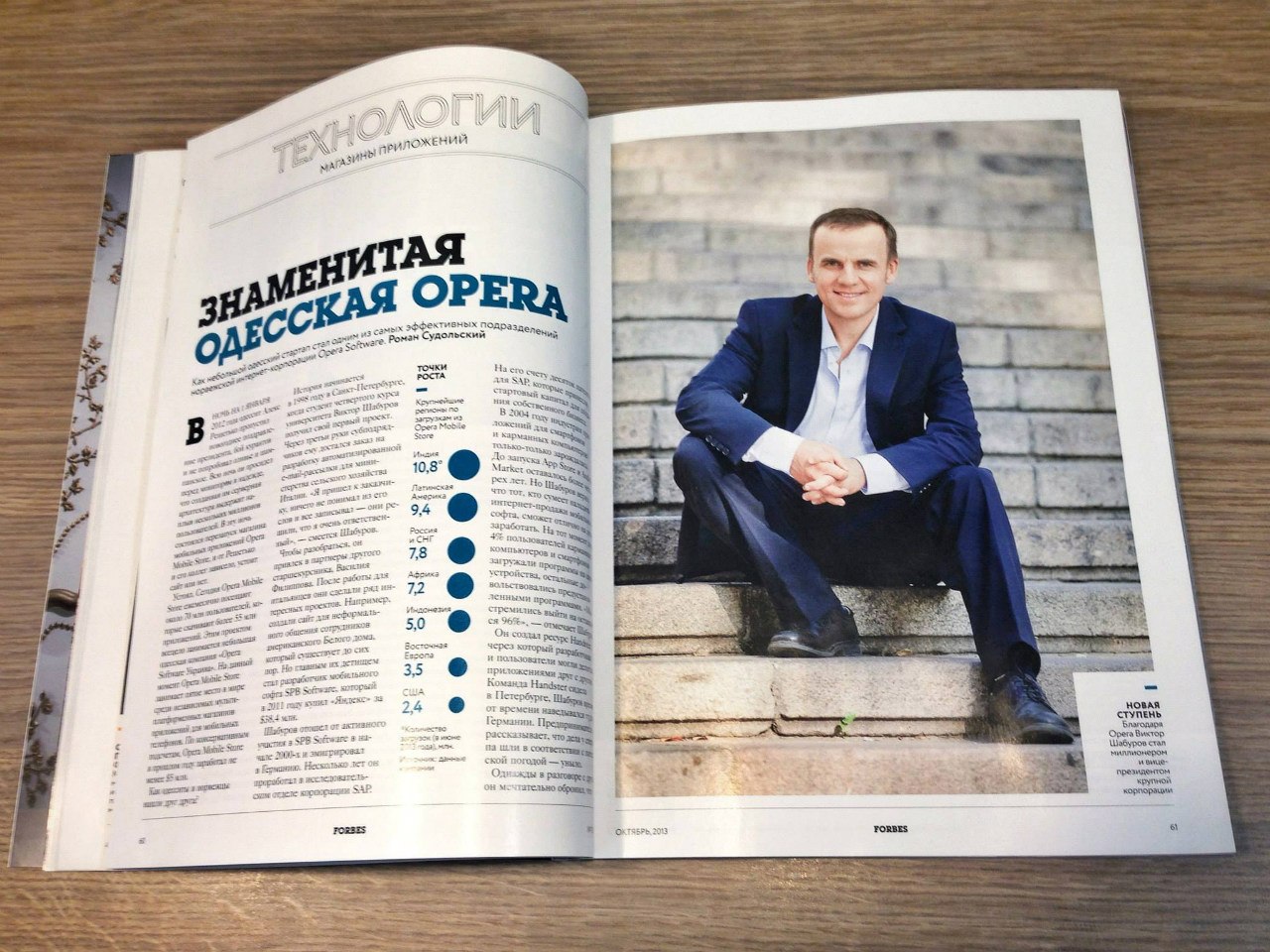
Since I had my own budget (it was impossible to go beyond the scope), I hired sellers in the CIS, most of them were in Odessa. We created something like McDonald's for salespeople, where you could hire people and briefly train them, provide them with good support in the form of analysts, graphic designers and throw them at the barricades. And they organized a "meat grinder": do not sell - we dismiss.
As a result, the sales team we created became so effective that Opera fired the Norwegian sales people because they were more expensive and less effective. For me it was a great achievement that in the Russian-speaking environment, you can build not only a cool team of developers, but also a cool team of international sellers.
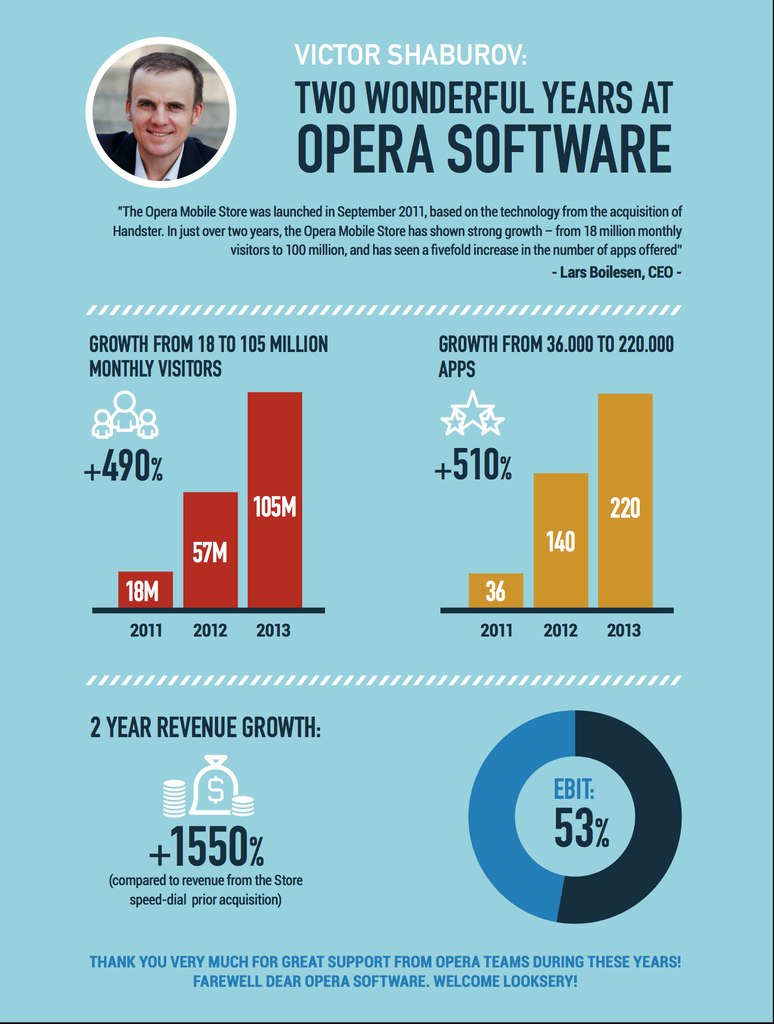
You have a very versatile experience. This is interesting ... Do I understand correctly that you appeared at Looksery at the time of the pivot idea, but initially this idea belongs to other people? Or am I wrong?
Not. Initially, we all created together. I sponsored Olympiads in Ukraine to find exceptional guys. Yuri Monastyrshin and his team won the programming championship twice. We decided that the guys are so smart that we definitely need to do something with them. Then we discussed for three months what we will do. Different ideas discussed ...
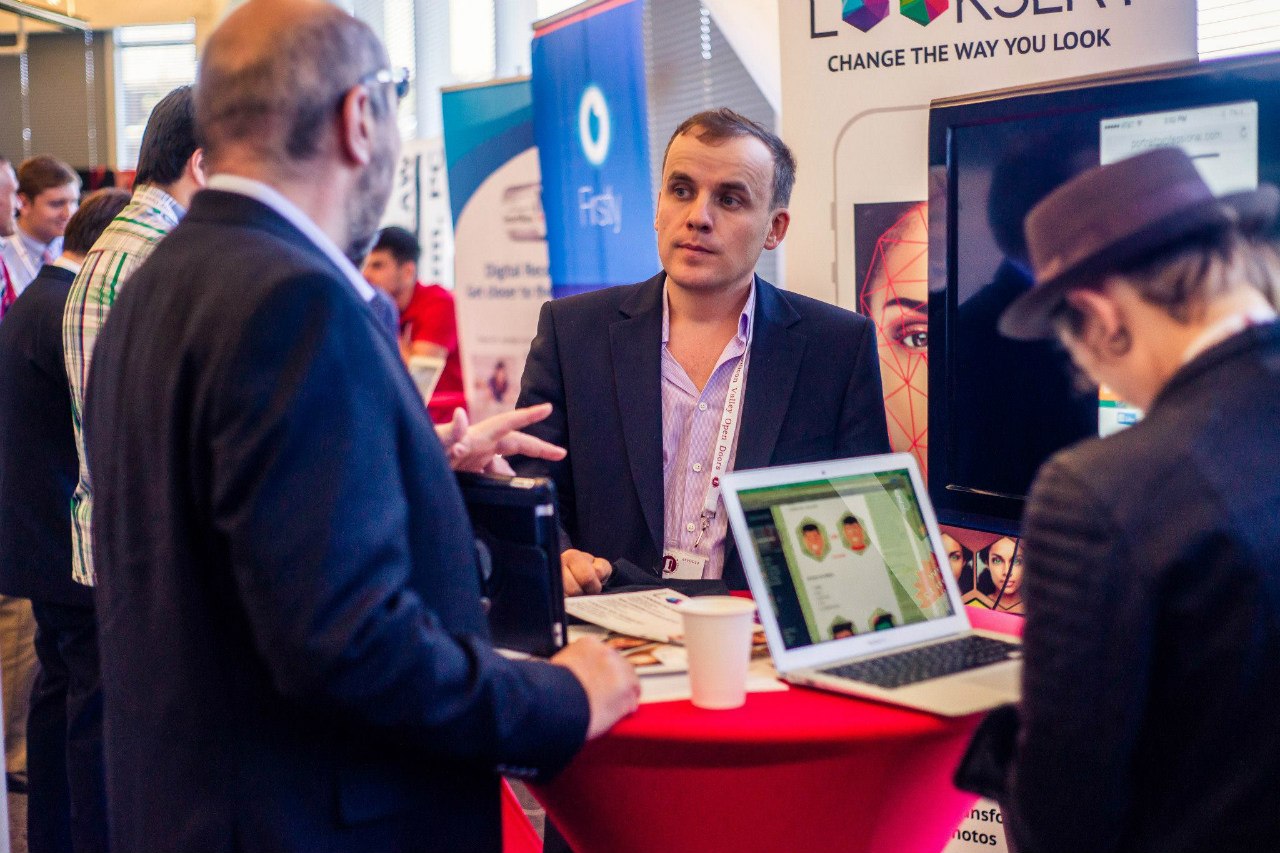
You need to know from what angle you can go. A good angle is “to see what has changed in hardware and what a breakthrough will occur in the software after that”. Example: social networks. There a breakthrough occurred after the appearance of digital cameras, not even so much the Internet ... Because the Internet appeared, and social networks did not spread. There were cheap digital cameras, and after that they pulled social networks.
Navigation appeared after the GPS appeared.
And we saw that the front camera on smartphones is something new. However, it distorts the face and makes it thicker than it actually is. The idea was that people want to look better than they are. At least not exactly worse. Therefore, you need to track the face during a conversation and make it a little thinner, that is, more proportional. That was the original idea. And when we achieved this, we decided: for that matter, we need to remove acne, change eye color, make up lips, turn cosmetics, turn a monster, and so on.
I recently talked with Yuri Gursky, who was in charge of MSQRD. How often have you been compared with them at all, and is there really some kind of background? Who appeared before?
We have already been on the market for a year and a half, and then they appeared after our sale. They even ripped off the user interface from us. In DiCaprio, his face was taken without demand, in Disney, the Disney cap was taken from everyone, little by little. But the technology was not bad, I must admit.
Are you mad or not?
No, at that time I was already a happy person. Moreover, when they asked me whether they should be sued - they violated patents, I said that the Belarusian team was successfully trying to tear us off - let them buy them too. Why not? Persuaded not to touch them.
In the preliminary conversation, you said that such tasks are not trivial. Tell us in more detail what challenges are confronting the person who takes on such tasks, in terms of development, the creation of any software product?
What qualities do you need to have? About the winners of the Olympiad - everything is clear. But they definitely need some additional skills?
They are not afraid of anything - this is a good factor. If a professional is assigned a task, he will talk to someone, type in other people's opinions and say that this cannot be done.
If you set a task for olympiad players, they will say: “Oh! We must solve it. " Go and solve it until they decide. This is a great quality.
The second quality (I don’t know if it remains now, but it’s definitely in my time) - there are no authorities. Compete with Facebook - no problem. You are not afraid of anyone and any American strong office without fear of trying to "soak." At least in its local market.
Let's change the subject. How long have you gone to the states? What are your feelings from this? I ask this question to all expats, because the answers are interesting.
I left for a long time in Germany. I moved to the states after a deal with Opera, 4 years ago. In comparison with Germany, the weather is good here, and even more so in comparison with Russia. Especially in Los Angeles, where I now live.
And so ... I am not a critic of something there. In Russia, too, there are pluses.
But it is in terms of work. Here you are now Director of Engineering in Snapchat. Maybe you will tell something from your own feelings?
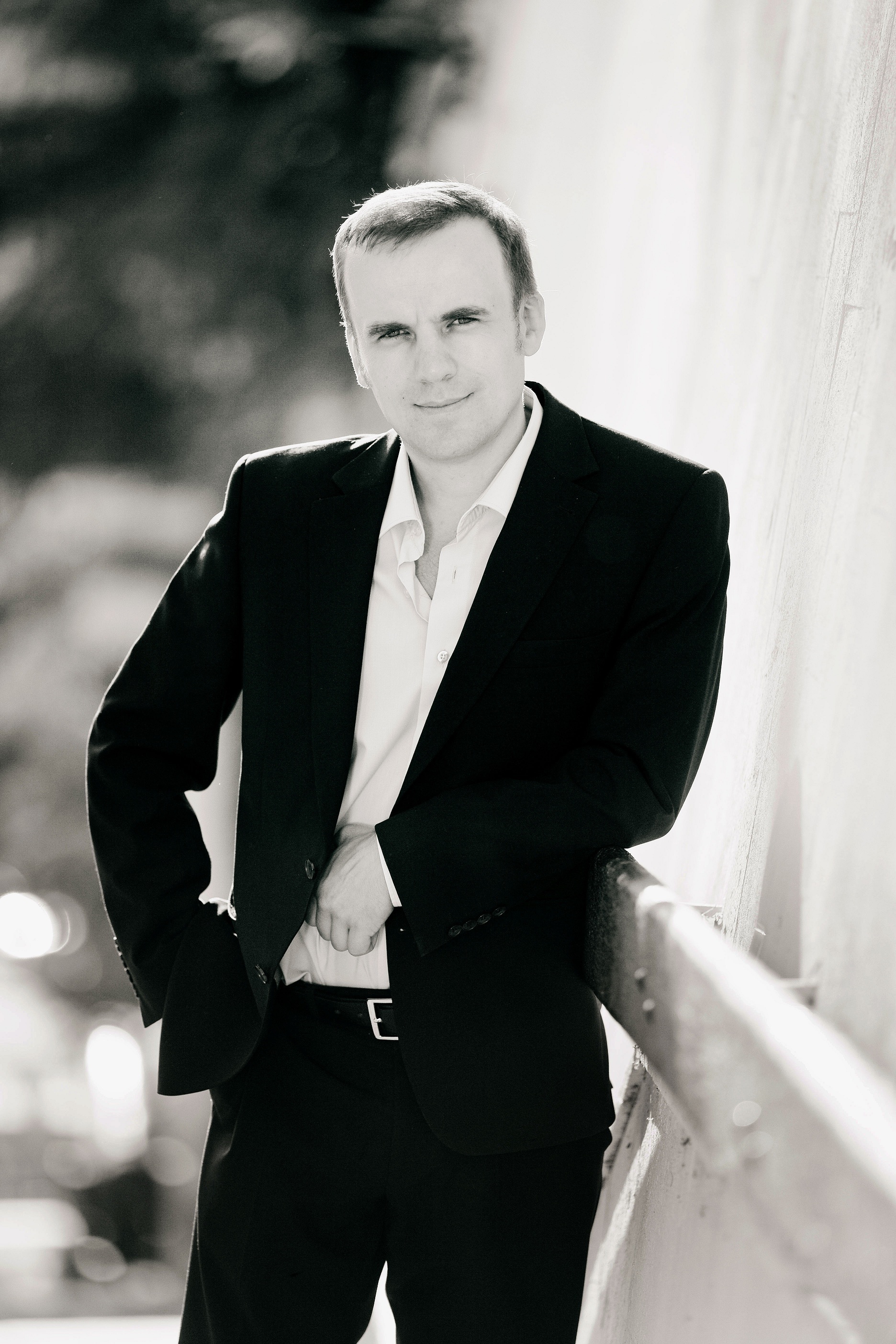
I can not comment on Snapchat.
I am rather interested in an overvalued labor market, and is it worth it?
America gives an excellent experience in terms of marketing and business development. True, not Los Angeles, and Silicon Valley. Los Angeles is a bit of a sleepy place. I would say Moscow is even more alive.
But Silicon Valley, of course, is a tin: everyone runs around with ideas, everyone pits - mega-energy. But at the same time it is also necessary to look realistically: there are such expenses that the command is very expensive to maintain.
When, for example, I had Handster, then at some point we had about 10 people. And we earned a little more than $ 1 million per year. And this money was quite enough. Moreover, there was a half profit.
And my friend, who also sat with 10 people in Silicon Valley, lived with the thought: “if I don’t lift the next round now, I’ll have a lid”. There was not enough money.
If he had the same scale, then a million would clearly not be enough ...
And then calmly: "You can still a couple of people, hire, try this direction." Having a team somewhere in Eastern Europe sounds very reasonable.
Why did you go to Snapchat? Is this under your NDA?
This is logical, since the transaction occurred.
Let's talk about charity. Have you been doing this tight for a long time? How much time do you spend on it? How does all this look from the inside?
Now I am actively engaged in charity. He became a sponsor of the world champions ACM 2016 - the St. Petersburg team. St.Petersburg State University - the university where I studied. I also studied for a year in the Ural University (Ural State University) and at the same time became a sponsor of the Ural team - she took the silver. This is the first time in the history of the Urals. Very good coach Mikhail Rubinchik. He created a wonderful team.
I myself am from a small village. For me it was a great success that I managed to do science. Therefore, we spend part of the money sponsoring sports programming circles at about 20 universities in Russia. There, the guys should regularly take tests on CodeForces. We pay salaries to teachers who deal with them. They also have the opportunity to play in the championship.
But we are doing this not in large cities, but more in regional ones - Rostov-on-Don, Taganrog, Vladivostok, and so on. But of course, this is also part of the business, because then the guys can be given money so that they can already start their own startups.
Do you practice it now?
Now my wife is doing this because I'm busy. She invested one team in Russia - in Sochi. The team is made up of Olympiads: there is a world champion in programming, a world champion in mathematics - that is, a super team ... guys from Yandex, Vkontakte there. Called - “Machine Learning Works”, what they do is a secret.
Victor, do you have children?
Yes. I have three. I try to teach them to programming, business programming too. Now they are doing their project, where the drone flies, recognizes faces and talks to people.
Let me ask you two standard questions that I ask everyone.
Advice to those who want to become a cool developer-businessman: create your own startup, enter the market, sell / not sell, or change the world ... Is there anything like that?
Here you just need to start and do. This is the main problem for everyone. If the guys at school are studying or at the university, then you need to learn mathematics ... and programming.
If the guys went to the World Cup, then for them the advice is this: do not go to work in any Facebook, Google or Yandex. There they suck routine. They have the only chance to create something cool right after the university or on the last courses. If at this moment they launch something of their own, they still have neither a wife, nor a car on credit, nor a house on credit. They may risk it. And not very much: you can pay yourself a very decent salary in a startup.
I have a very good friend, a fairly well-known web designer. Also Russian speaking, by the way. He often says: “What kind of startupers, for example, in Russia? You need to live with your mother at home so that your mother will feed you. Otherwise, where did you get time for all this? ” Are you talking about the same?
This is more about the early period. When a person finishes a university or is close to its termination, he still has no obligations in the form of a family, loans, and he can lean start to make. He doesn’t need much, and he can put together a team of like-minded people, get investments, for example, from us.
And we will do the rest for him: catching up attorneys who register the corporation, catching PR managers, making PR, marketing people catching up ... We will help to hire professional programmers who are usually needed around a smart team. We know how to build a super team ...
We are a sort of model agency. We need these stars, superstars. They need to do what they like to do: create something creative, and we know how to shape the process around them very well.
And if a person went to Facebook and worked in it for 4 years, then he usually already has a car, a girlfriend or wife, a house ... And that's it: he's stuck. After that, he will remain on Facebook until he is fired.
?
. . , . , , .
Source: https://habr.com/ru/post/304440/
All Articles